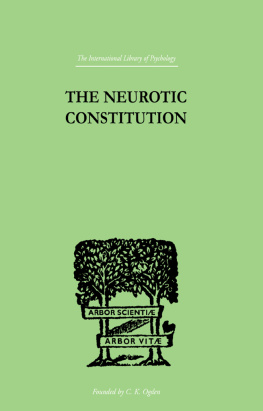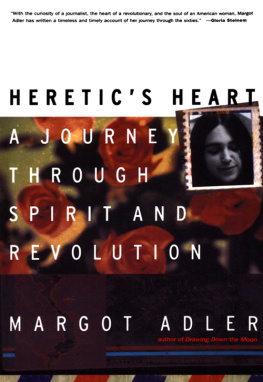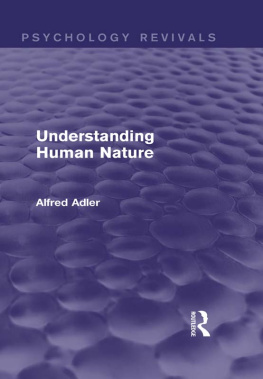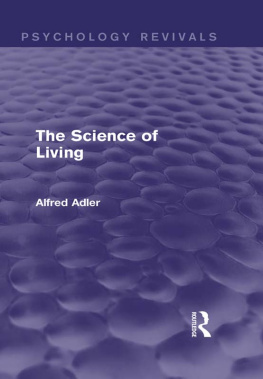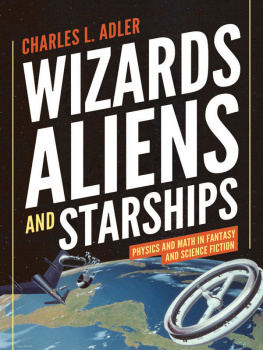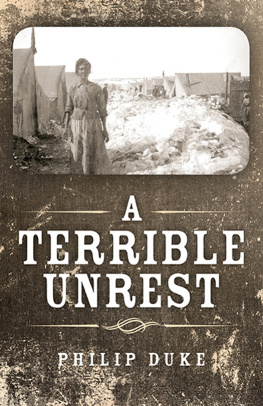SIX GREAT IDEAS
TRUTH GOODNESS BEAUTY
Ideas We Judge By
LIBERTY EQUALITY JUSTICE
Ideas We Act On
MORTIMER J. ADLER

TOUCHSTONE
To the benefactors and trustees
of the
Institute for Philosophical Research

TOUCHSTONE
Rockefeller Center
1230 Avenue of the Americas
New York, NY 10020
www.SimonandSchuster.com
Copyright 1981 by Mortimer J. Adler
All rights reserved, including the right of reproduction
in whole or in part in any form.
First Touchstone Edition 1997
T OUCHSTONE and colophon are registered
trademarks of Simon & Schuster Inc.
Manufactured in the United States of America
9 10
Library of Congress Cataloging-in-Publication Data is available.
ISBN-13: 978-0-684-82681-3
ISBN-10: 0-684-82681-X
ISBN-13: 978-0-684-82681-3
eISBN-13: 978-1-439-10492-7
OTHER BOOKS BY THE AUTHOR
Dialectic
What Man Has Made of Man
How to Read a Book
How to Think About War and Peace
The Capitalist Manifesto
(with Louis O. Kelso)
The Idea of Freedom
The Conditions of Philosophy
The Difference of Man and the Difference It Makes
The Time of Our Lives
The Common Sense of Politics
The American Testament
(with William Gorman)
Some Questions About Language
Philosopher at Large
Reforming Education
Great Treasury of Western Thought
(with Charles Van Doren)
Aristotle for Everybody
How to Think About God
Paideia Problems and Possibilities
The Paideia Program
The Paideia Proposal
The Angels and Us
How to Speak, How to Listen
A Vision of the Future
Ten Philosophical Mistakes
Contents
PART TWO. IDEAS WE JUDGE BY:
TRUTH, GOODNESS, AND BEAUTY
Preface
I T IS WITH THE KIND OF PIETY that Confucius thought should be accorded our ancestors for their contribution to our being that I look upon the sources of this book. I am also observing the Mosaic precept to honor ones father and mother, understood in the broadest sense as paying homage to the sources of ones understanding as well as of ones being.
Working for the Encyclopaedia Britannica Company and with Robert Hutchins at the University of Chicago in editing and publishing Great Books of the Western World, I produced two volumes on the great ideas, entitled the Syntopicon. These were intended to guide readers to the important passages in which the discussion of the great ideas can be found in the great books. In the course of that work, I wrote essays on each of the 102 great ideas, which comprise the chapters of the Syntopicon.
The first exploration of the whole realm of great ideas, each in itself and in relation to others, led naturally and almost inevitably to the inception of the Institute for Philosophical Research, conceived as a group of scholars dedicated to cooperative work on the great ideas. Their objective was to take stock of what had been thought about each of those ideas in the whole tradition of Western thought, to identify the diversity of meanings that constitute their inner complexity, to formulate the questions about them that had been disputed, and to examine as well as to assess the opposed voices in the controversies that ensued.
The Institute for Philosophical Research was established in 1952 by a grant from the Ford Foundation when Paul Hoffman and Robert Hutchins were, respectively, its president and vice-president, and by a grant from the Old Dominion Foundation. Since 1956, it has enjoyed sustained and sustaining support from Paul Mellon and Arthur A. Houghton, Jr.
In the course of almost thirty years it has made a good start on the enormous task to which it was originally dedicated. It could not in that time succeed in exploring the whole realm of the great ideas to an extent and to a depth that went far beyond the initial exploration of them in the Syntopicon. It would probably take five times thirty years, or even more, to complete the job that the Institute set for itself.
Nevertheless, the work it has accomplished since 1952 is a respectable and worthy beginning. Its senior fellows and their junior associates have engaged in research and collaboration and have done the writing that has resulted in the publication of a number of books or lengthy monographs: two volumes on the idea of freedom; one volume each on the ideas of justice, happiness, love, progress, and religion; and a monograph on the idea of beauty. With respect to the idea of equality, on which much work has been done over a period of years, a file of unpublished papers has been accumulated.
In addition, I must mention books that I have written during this period with the assistance of my colleagues at the Institute and subject to criticism and revision by them. Those that have a bearing on the six great ideas treated in this book include The Conditions of Philosophy, which dealt with the modes of truth and the distinction between knowledge and opinion in the realms of mathematics, science, history, and philosophy, as well as in the sphere of commonsense thought; The Difference of Man and the Difference It Makes, in which the equality in kind of all human beings was treated in the context of the difference in kind between man and lower animals; The Time of Our Lives, subtitled The Common Sense of Ethics, in which the idea of the good and of mans ultimate good, which is happiness, received examination in the light of distinctions between real and apparent goods, needs and wants, natural and civil rights; The Common Sense of Politics, in which the sovereignty of justice was recognized as indispensable to reconciling liberty and equality and maximizing both harmoniously.
In the course of the last thirty years, I have also had the privilege and pleasure of moderating executive seminars conducted under the auspices of the Aspen Institute for Humanistic Studies. The program of readings in these seminars dealt with the ideas of liberty, equality, justice, rights, wealth and property, virtue and happiness. I have profited greatly from the discussions in which these seminars engaged, learning more, I suspect, about the great ideas being discussed than was learned by the participants who were being initiated into the consideration of them.
To all these sources of what is here written about six great ideas, I owe a debt of gratitude as well as an expression of homage and piety, most especially to the benefactors and trustees of the Institute for Philosophical Research, to whom this book is dedicated, as well as to all my many associates, past and present, at the Institute. I trust they will forgive me for not mentioning all their names.
Contrary to my usual habit, I have not appended a selected bibliography at the end of this book. My reason is that readers who wish to consult the best texts on these great ideas can find them cited in the two volumes of the Syntopicon (in Chapters 6, 30, 42, 47, and 94), and also in the Great Treasury of Western Thought, in the production of which my Institute and Britannica colleague, Charles Van Doren, collaborated. There they will more easily find important passages on these great ideas, because there they are quoted in full, not merely cited as in the Syntopicon (see Chapter 6. Section 3; 9.6; 9.7; 12.2; 12.3; 13.2; 13.3; 16.6).


